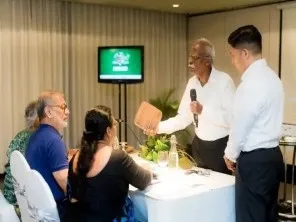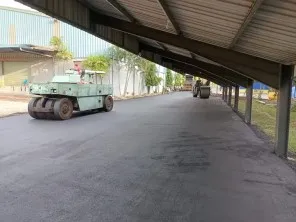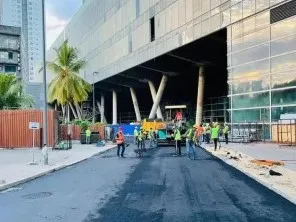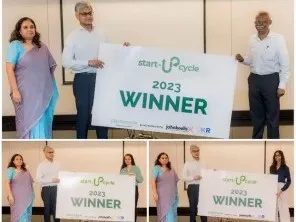

Plasticcycle is a Social Entrepreneurship Project by John Keells Group with an aim at reducing plastic pollution, through encouraging reduction in the use of single-use plastics, supporting responsible disposal and promoting recycling initiatives. The John Keells Group, acknowledging the fact that products and services provided by the Group also contribute to the plastic pollution problem, launched Plasticcycle in July 2017, with a vision of being a catalyst in significantly reducing plastic pollution in Sri Lanka. The mismanagement of plastic waste has resulted in our landfills and the environment exceeding their carrying capacities and Plasticcycle aims to initiate and support in implementing sustainable
Plasticcycle continuously promotes the 4R’s – Refuse, Reduce, Reuse, and Recycle striving to raise awareness among the general public and encourage behavioral change. By using both traditional and digital methods, we aim to inspire individuals to reduce their plastic footprint. A key part of our efforts is encouraging young change makers, who are our future leaders, through awareness sessions conducted at schools. We also inspire long-term commitments through the Plasticcycle pledge.
Additionally, we collaborate with public sector stakeholders, including Municipal Councils, to educate those on the ground in the value chain about the importance of responsible waste collection and management, and how their work can make a difference to the country. Furthermore, we work alongside the Marine Environmental Protection Authority (MEPA) to empower coastal communities and educate them on the importance of preserving the beaches and reefs around the country. We also conducted awareness sessions for field officers on invitation from the Sectoral Oversight Committee on Environment, Natural Resources & Sustainable Development, further strengthening their understanding of sustainable practices and plastic waste management.
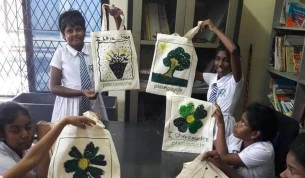
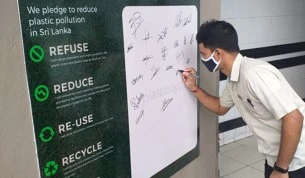
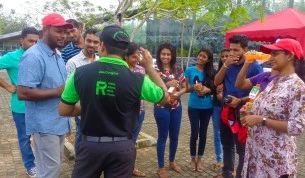

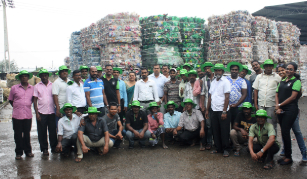
With the aim of providing avenues for responsible disposal, Plasticcycle has placed over 300 specially designed bins across the island with expansions to the Northern and Sabaragamuwa regions. Since 2017/18, Plasticcycle has successfully collected 215,124 kg of plastic waste through these initiatives.
Based on the positive response to the bins, Plasticcycle has expanded its efforts to include popular retail outlets, housing developments, recognized sports complexes, schools, universities, and places of recreation. Working alongside manufacturing companies like Eco-Spindles, a subsidiary of BPPL Holdings PLC, Plasticcycle has contributed to the production of value-added products using recycled plastic, including monofilaments for cleaning tools and yarn for fabric manufacturers worldwide. In addition to these efforts, Plasticcycle works with dedicated collectors and monitoring partners such as Eco-Spindles and Enviro.
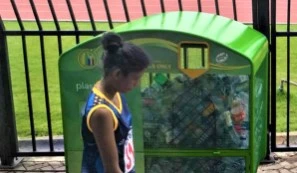
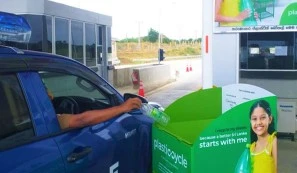
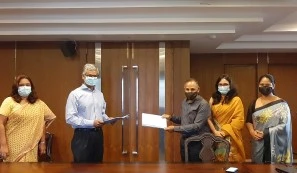
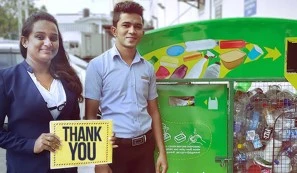
Plastic Modified Asphalt Concrete (PMAC) is one of the innovative solutions being used to tackle the issue of non-recyclable plastic waste. Through a partnership with AGC Innovate, non-recyclable plastic is processed into a stronger asphalt mix, which is then used for roads, car parks, and driveways, offering both environmental and infrastructural benefits.
Another key initiative is the Start-Up-Cycle challenge, launched in 2023 in collaboration with John Keells X and John Keells Research. This platform gives startups and entrepreneurs the opportunity to develop practical solutions to reduce plastic waste in key industries. At the Demo Day held at Cinnamon Grand, three standout solutions were selected for further development and prototyping. Now in its second year, Start-Up-Cycle continues to support innovators in creating commercially viable, sustainable alternatives to plastic products, reinforcing our commitment to long-term change in reducing plastic pollution.
